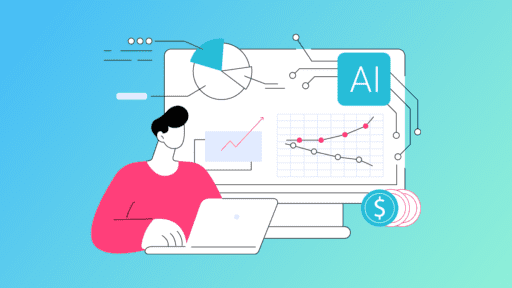Search engine optimization (SEO) has become a vital aspect of any successful online presence. With millions of websites competing for user attention, it is crucial to rank high in search engine results pages (SERPs) to attract organic traffic.
As technology continues to evolve, artificial intelligence (AI) is playing an increasingly significant role in reshaping the SEO landscape. From understanding user intent to optimizing content and improving search engine algorithms, AI is revolutionizing the way businesses approach SEO strategies.
AI is Changing SEO Success
In this blog, we will explore how AI is unlocking SEO success and transforming the search landscape.
1. Understanding User Intent
AI has the ability to analyze massive amounts of data and interpret user behavior patterns to understand the intent behind search queries. By using natural language processing (NLP) algorithms, AI-powered search engines can identify the context and semantic meaning behind a user’s search, resulting in more accurate search results.
This understanding of user intent enables businesses to create content that aligns with what users are looking for, improving organic search rankings and driving targeted traffic to their websites.
2. Intelligent Content Creation
Content creation is a fundamental aspect of SEO. AI is revolutionizing this process by enabling businesses to create high-quality, relevant, and optimized content at scale. AI-powered content generation tools can analyze existing content, identify popular topics, and generate unique and engaging articles, blog posts, and product descriptions.
These tools also help in optimizing content for SEO, suggesting relevant keywords, and improving overall readability. By leveraging AI in content creation, businesses can streamline their processes, save time, and maintain consistency across their digital platforms.
3. Enhanced On-Page Optimization
On-page optimization is crucial for improving search engine rankings. AI algorithms can analyze websites and provide valuable insights into areas that need improvement. This includes optimizing meta tags, headers, images, and URLs to enhance relevancy and user experience.
AI-powered tools can also perform technical audits, identify broken links, improve page load speed, and ensure mobile-friendliness, all of which contribute to higher search rankings. By leveraging AI for on-page optimization, businesses can fine-tune their websites to meet the ever-changing requirements of search engine algorithms.
4. Advanced Image and Voice Search
With the rise of visual and voice search, AI is transforming how users interact with search engines. AI-powered image recognition algorithms can analyze and understand the content of images, leading to better image search results. This opens up new opportunities for businesses to optimize their visual content and attract organic traffic through visual search engines.
Similarly, AI-based voice recognition technology, such as virtual assistants, is changing the way users search for information. Optimizing content for voice search queries, which are often longer and conversational, becomes crucial for SEO success in the AI-driven search landscape.
5. Evolving Search Engine Algorithms
Search engine algorithms are becoming increasingly complex and sophisticated, thanks to AI. Machine learning algorithms analyze vast amounts of data, including user behavior, preferences, and search patterns, to continuously refine search engine results.
AI enables search engines to deliver personalized and relevant search results to individual users, taking into account their location, search history, and preferences. This evolution in search algorithms means that businesses need to adapt their SEO strategies to meet the changing dynamics of AI-driven search engines.
6. Predictive Analytics for SEO
AI-powered predictive analytics can provide valuable insights into future search trends and user behavior. By analyzing historical data and patterns, AI algorithms can help businesses anticipate changes in search engine algorithms and adjust their SEO strategies accordingly.
Predictive analytics can also assist in identifying emerging keywords and topics, allowing businesses to stay ahead of the competition and optimize their content to match evolving user preferences.
7. Local SEO Optimization
AI is playing a significant role in improving local search engine optimization. With the growing importance of local search, AI algorithms can understand the geographic context and deliver more accurate and relevant local search results. This is particularly beneficial for businesses targeting local audiences.
AI-powered tools can assist in optimizing local listings, managing online reviews, and tailoring content to specific geographical regions, enhancing visibility in local search results and driving foot traffic to physical stores.
8. User Experience Enhancement
User experience (UX) is a critical factor in SEO success. AI is being utilized to enhance UX by analyzing user behavior, preferences, and engagement metrics. Through machine learning algorithms, AI can identify patterns that indicate positive user experiences and provide insights for website improvements.
This includes optimizing site navigation, streamlining the user journey, and personalizing content recommendations. By prioritizing UX through AI-driven insights, businesses can improve visitor engagement, reduce bounce rates, and ultimately boost their search engine rankings.
9. Social Media and SEO Integration
AI is bridging the gap between social media and SEO strategies. AI algorithms can analyze social media platforms to identify trending topics, conversations, and influencers. This information can be leveraged to inform content creation and keyword targeting for SEO purposes.
Additionally, AI-powered chatbots and virtual assistants are being used to engage with social media users and answer their queries, driving traffic to websites and improving overall brand visibility.
10. Continuous Optimization and Adaptation
One of the key advantages of AI in SEO is its ability to continuously optimize and adapt strategies based on real-time data.
AI algorithms can monitor and analyze website performance, search rankings, and user behavior, allowing businesses to make data-driven decisions and implement changes promptly. This iterative approach ensures that SEO strategies remain effective and responsive to the evolving search landscape.
11. AI-Powered Competitor Analysis
AI can provide businesses with valuable insights into their competitors’ SEO strategies and performance. AI algorithms can analyze competitor websites, keywords, backlinks, and content strategies to identify strengths, weaknesses, and opportunities.
This information helps businesses fine-tune their own SEO strategies and develop a competitive edge. By leveraging AI-powered competitor analysis, businesses can stay informed about industry trends and adjust their SEO approaches accordingly.
12. AI for Mobile Optimization
With the increasing use of mobile devices for online searches, AI is playing a crucial role in mobile optimization. AI algorithms can analyze user behavior on mobile platforms and provide recommendations to enhance mobile user experience.
This includes optimizing mobile site speed, improving mobile responsiveness, and ensuring a seamless mobile browsing experience. By leveraging AI for mobile optimization, businesses can capture the growing mobile user base and improve their search rankings in mobile search results.
Conclusion:
In the ever-evolving digital landscape, AI is revolutionizing the field of SEO and reshaping the way businesses approach search engine optimization. From understanding user intent to optimizing content, enhancing user experience, and adapting to emerging trends, AI-powered tools and algorithms are unlocking SEO success for businesses across various industries.







